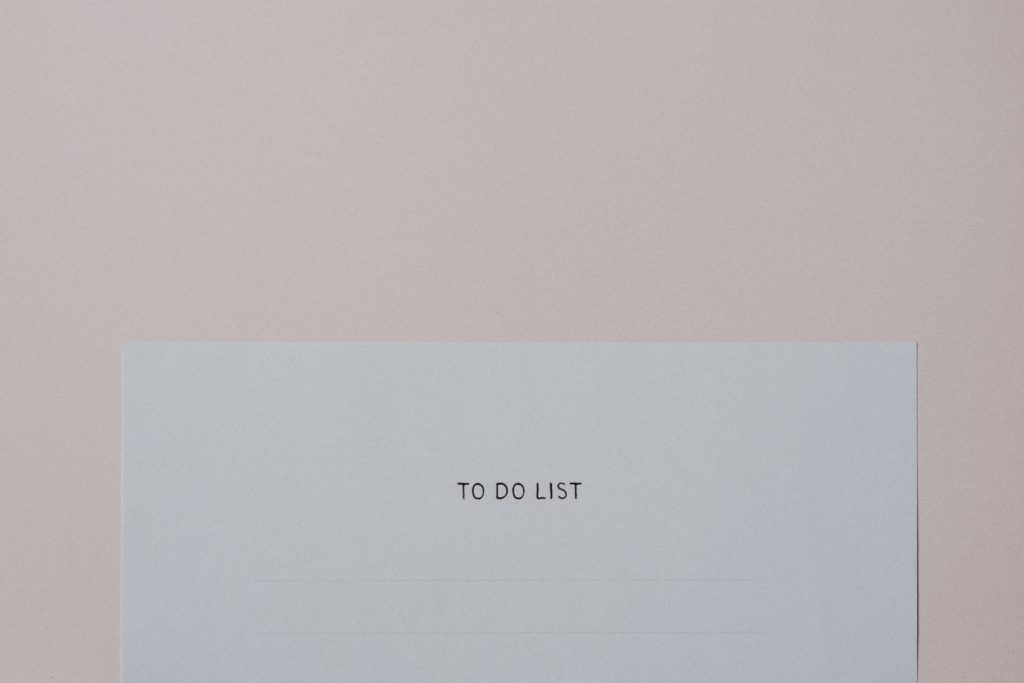
Feeling snowed under? Here are four ways to deal with work-induced stress
Feeling snowed under? Here are four ways to deal with work-induced stress
April 26, 2022

The long-awaited weekend. Pure, unadulterated joy washes over you as you wake up on Friday morning, safe in the knowledge that in approximately T-12 hours, you’ll be liberated from the chains of the daily grind for 48 sweet hours. For many of us, the weekend shines forth brightly as the light at the end of the tunnel, each and every working week.
And when the weekend inevitably draws to a close, ushering in a new week of work-induced stress, you’re jolted back into reality, out of your dream-like state. It can feel like being swept up from serenely smooth waters and hit by a ferocious tidal wave. It’s a rude awakening that you can never truly feel prepared for. In the blink of an eye, the weekend is snatched away, and the cycle begins all over again.
When Monday morning rolls around, you tentatively open up your work laptop, peeping fearfully through your fingers as you glance at the screen, like a character in a horror movie. You’re hit with an influx of work emails and urgent inquiries. And just like that, you’re snapped out of your period of rest and relaxation, and the cogs of the daily grind creakily begin to turn again.
But it shouldn’t have to be like this. You shouldn’t have to go to bed every Sunday night with butterflies in your tummy, or wake up on a Monday dreading the week stretched out in front of you. You shouldn’t be so stressed out by work that you’re trapped in a cycle of counting down the days until the weekend can offer you some respite.
Don’t get me wrong – stress is a natural response to workplace pressure, and can actually be a force for good. It can light a fire under you and fuel you to work hard. But it’s crucial to manage stress so that it doesn’t get out of hand; when you’re excessively stressed out, this can lead to burnout and cause your productivity and motivation to dramatically plummet. And it can have a serious impact on your mental and physical health.
Incorporate stress management techniques into your daily routine to ensure that you don’t suffocate under the weight of uncurbed stress. As Stress Awareness Month draws to a close, what better time to explore some methods of coping with work-related stress?
Make time for yourself
Making time for yourself during the working week can seem like a Herculean task – unrealistic and unachievable. You may feel as though there simply aren’t enough hours in the day, unless you were to wake up promptly at the crack of dawn, light some incense, perform an early morning yoga sequence, prepare a green juice and meditate all before your 8:30am meeting.

In reality, however, making time for yourself doesn’t have to look like this. Simply carve out a period of time each day, whether that be ten minutes or two hours, dedicated entirely to something you enjoy doing. Block out a set amount of time to do something for yourself, for no other purpose than pure enjoyment: read that book that your friends have been recommending for as long as you can remember, go for an evening stroll, follow that recipe you’ve been keen to try, fit in ten minutes of exercise.
Whatever your self-care rituals may look like, make sure that they work for you. Wellness is not one-size-fits-all. You don’t have to sign up for expensive Pilates classes or put yourself through gruelling, Augean F45 or 1Rebel circuits in order to incorporate fitness into your weekly routine. A quick search on YouTube will unveil millions of ten-minute workouts that you can comfortably fit in around your schedule, no matter how hectic it may be.
Cultivate daily habits that you can look forward to throughout your day. It can be something small, like the ritual of making your morning coffee, or doing a five-minute stretch in the evening to unwind after sitting rigidly at your desk all day. ‘Me time’ is a tried-and-tested stress management tool.
Plan ahead
There’s no worse feeling than hazily falling out of bed in the morning, plonking yourself at your desk at 8am and realising that you have a growing mountain of work in front of you and absolutely no idea where to start.
Having to face off against this imposing tower of work can easily make you feel overwhelmed and overburdened. In order to tackle this feeling, use the start of your morning to plan ahead, scheduling and mapping out your day, allocating the necessary time and energy to each task.
This is a small but mighty stress management technique. Simple as it may seem, it’s a sure-fire way to limit excessive work-related stress. When your brain feels like a jumbled-up jigsaw puzzle – thousands of tiny, fragmented pieces in a mixed-up mess – you can put all the pieces of the puzzle together by creating a clear and organised schedule at the beginning of each work day. By compartmentalising your day, designating a specified amount of time to your different tasks and responsibilities, you’re breaking down your work into bitesize chunks. You can lay things out, approaching each task in turn, as opposed to drowning under a mass of work.

There’s something undeniably therapeutic about the act of ticking tasks off your daily planner. It’s a concrete way of signalling to your brain that you’re being productive, and getting things done in an organised and measured way.
Shut off and take a breather
Setting boundaries is important.
You may be keen to impress a new boss, or take on some extra work to help a co-worker out. But working non-stop into the early hours of the morning is never the answer. Overexerting yourself is a guaranteed way to end up burnt-out and stressed out. If you’re using your phone at maximum brightness, flicking between 20 different apps at a time, non-stop, without charging it, it’s inevitably going to run out pretty quickly. Sometimes, you need to operate in battery-saver mode, or give yourself an opportunity to recharge.
Recognise when it’s time to walk away from your work, to shut off and take a well-deserved breather. There’s no shame in closing your laptop screen down if you feel like you need a break. Obviously, within reason: don’t skive off of work at the first opportunity. But if you’re working hard and in need of some respite, take the time to go for a walk and reset. This can actually be highly beneficial for the quality of your work; when you come back to the task at hand, refreshed and revitalised, you can look at your work through a fresh pair of eyes. It can give you some perspective, ensuring that you don’t get bogged down in a bottomless pit of work.
And let’s not forget the ultimate key to coping with stress: getting a good night’s sleep. Never underestimate the power of a solid night of sleep; sleeping well is required to ensure that you function at full capacity during the work day, and a proper night’s sleep can alleviate stress.

All-nighters were the bane of my university life. The feeling is etched into my brain – leaving an essay to the last minute, powering through it at 4am, fuelled by nothing but Red Bulls and the fast-approaching deadline. The bags forming under my eyes would grow more visible as the sun gradually rose, and my hands, shaking with the adrenaline of the Red Bull coursing through my veins, would go to click send, beads of sweat dripping down my face. I’ve made a vow to myself to keep all-nighters firmly in the past, and it shouldn’t be something you feel the need to resort to in your working life either.
Steer clear of unhealthy coping mechanisms
When it comes to dealing with stress, there definitely is a right and a wrong way to go about it. And when you let stress bubble away on a high heat for an extended period of time, it eventually spills over into unhealthy territory.
When you don’t have healthy coping mechanisms in place, you risk falling into unhealthy habits as a means of dealing with stress. Whether it be drinking too much alcohol, smoking, developing unhealthy eating habits or avoiding responsibilities.
These coping mechanisms may seem harmless, or like a form of escapism in the short-term, but long-term they can be deeply detrimental to your health. Weed out the cause of stress at its root, rather than addressing the symptoms in a dangerous way.

